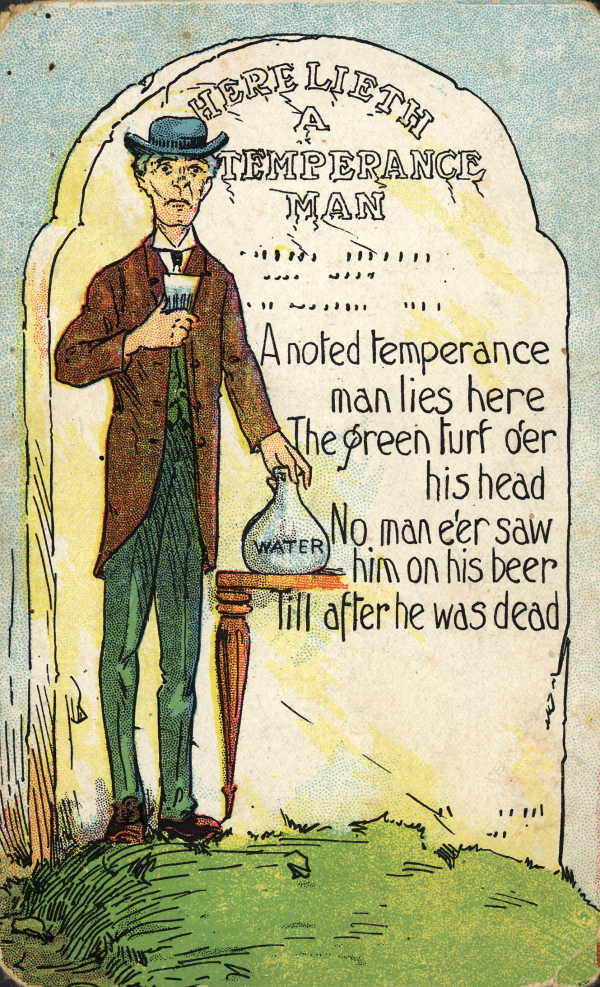
Editor’s note: This is a guest post from Tyler Tervooren from Advanced Riskology.
The other day I asked myself, “Tyler, how long has it been since you’ve recognized yourself?”
That’s a pretty funny question when you think about it. But the truth is the me that I know today is less than two years old. My life has changed dramatically in the last 20 months—by accident at first when I was fired from my job, and then slowly but surely on purpose as I learned about what really motivated me to make significant changes in my life.
To say I’m happier now is an understatement. When I look at pictures of myself from a few years ago—slightly overweight, mildly depressed, and generally bored—I can’t help but feel a bit sorry for the old me. If only Old Tyler had learned earlier what New Tyler knows now…
I turned 27 a few weeks ago. Birthdays have a funny way of making you examine what the hell you’re doing with your life. If you’re lucky, you won’t come out of it too depressed. And for the first time in a long time, I was excited about the year ahead.
And what about the year ahead of you? This is your life after all, and time seems to speed up with each one that passes. If you’re waiting to make a change for the better, then what, exactly, are you waiting for?
Me? I was waiting for something big to happen—a sign from the universe that told me it was time to change. Lucky for me, I got it when I was fired from my job. But should I have needed that? I don’t think so. I certainly don’t feel like I need it now. I’m capable of any change I want to make—with or without any galactic message.
The truth is, these kinds of messages surround me every day if I’m willing to look for them.
What Man Hasn’t Squandered a Life-Changing Event?
Human nature tells us to strive for more: own more, do more, be more. As a man, this is both your gift and your plight. And while we’ve learned to accept and attenuate our desires to have and do more, what man goes a day without wishing to be more?
And is that such a bad thing? Is it not required of us, as men, to attempt to be more each and every day? To be more faithful and less capricious? More dependable and less inconsistent? Filled more with life and less with burden?
What man doesn’t wish to be better tomorrow than he is today? And what man who doesn’t deserves tomorrow at all?
So we aim, strive, and toil to improve, but so many of us find improvement fleeting. Improvement means change. And change is hard. Change is uncomfortable. Change is risky.
Despite the intense desire to pursue it, our habits of yesterday tend to win the fight for the future—the best predictor of how a man will behave tomorrow is how that man behaved yesterday.
So how does a man, flawed as every other and steeped in responsibility and other burdens, change his position to become better? How does he begin to reconcile the difference between the man he sees in the mirror and the man he constructs in his mind?
The answer, perhaps, is not so complicated:
He alters himself in response to a life-changing event.
The Life-Changing Event as a Force for Revolution
If motivation is the missing ingredient for a man to make a change in his life and follow his dream, then fear is almost certainly the culprit. This fear stems from the risk that if he were to try, it may not work. Failure, they tell us, is something to be celebrated, but science tells us—and a man knows intuitively—that depression is the result when we try and fail to change something important.
These are large hurdles to overcome, yet nothing makes overcoming them easier than a truly life-changing event, and almost every man has experienced one in his life.
The unexpected loss of a job, a messy divorce, a death in the family, or the prognosis of a terminal illness. These types of unwanted traumas, time and time again, produce massively positive changes in those fortunate/unfortunate enough to experience them.
Life-changing events work because the unsolicited stress they produce is many orders of magnitude greater than the changes that used to seem enormous and insurmountable. They raise a man’s stress threshold.
When you can look at yourself and objectively say, “Everything in my life has changed, and the world will never be the same again,” what seemed impossible before, now becomes inevitable.
If you were given six months to live, would you spend your day tomorrow the same way that you plan to spend it now? What if you separated from your wife or girlfriend with the knowledge that you’ll never be together again? Would you behave the same as you did yesterday, or would you immediately make a change? If tomorrow you lost the job you hate but can’t imagine leaving, would you immediately look for another one you’d hate, or might you apply a little different criteria to the work you’re willing to do?
Without a doubt, a truly life-changing event can take a man’s dreams and make them a reality in rather short order. The problem, of course, is that you get no control over these things. You have no say in when an event like this will come, so instead, you wait impatiently for one to arrive, all the while praying that it never actually occurs.
But in the meantime while we wait for these life-changing events, we’re squandering many smaller ones every day.
Mini Life-Changing Events: How a Man Changes His World on Purpose
Perhaps the reason we need such enormous events to make an appreciable difference in our lives is because the changes we want to make are equally enormous. When our desires are overwhelming, so to must be the events that precipitate them.
So, what if you were to dial down your desire? Cut it in half. Then cut it in half again. And again.
What if you dissected your desire for change until you had something so small and commonplace that it took almost no effort at all to achieve? Then what kind of life-changing event would be necessary to motivate you to act? An equally small one.
And what if you multiplied these changes over time? What could you accomplish in a week, a month, a year if you acted on one unremarkable life change each day?
What kind of remarkable things might they add up to? Who might you become then?
Each and every day, we wander through the world, manipulating it as we go. And with each step we take, breath we breathe, word we utter, the world manipulates us back.
Each of these moments has the potential to be the catalyst for the world’s tiniest revolution, if only you repair your filter to allow yourself to see them. But with no milestones to guide the way, they’ll go unnoticed—squandered by a need for too much, too soon.
Just as the savvy card player looks for an opportunity in every hand rather than waiting to be dealt a royal flush, so must you look for an opportunity in every moment of every day. The card player may need $1 million to win the tournament, but he must get there $1,000 at a time. You may need to turn your life 180 degrees, but you must get there in excruciating 1-degree pivots.
The beauty, of course, is that these tiny actions don’t act independently. And they don’t only add together, they multiply. Each step, each pivot, builds momentum in an exciting new direction.
The card player may start by winning $1,000 hands, but with several of those behind him, $10,000 hands become the new normal. Before long, he is winning $100,000 hands and his ultimate goal is at the tip of his fingers.
To begin this process, though, a man must wake himself up—not in a physical sense, but in a perceptual one.
The Awakening of a Man to the Realization of His Dream
Once a man realizes that the task in front of him is to make many small changes over time, his immediate goal must be to wake himself up in a way that will allow him to estimate the changes needing to be made.
To do so, he must make three critical adjustments to his life:
- The tuning of his perception filter
- The deceleration of the speed of his life
- The reframing of his daily experiences
By focusing his attention here, he can prepare himself to take advantage of the many life-changing events each day that were never noticed before.
The tuning of your perception filter
In order to make tiny changes, you must prepare yourself to see the tiny things that precipitate them. Where you previously waited for life to hand you a striking blow, you now must turn up the dial on the microscope and become sensitive to the many small events that happen each day that affect how you behave.
By tuning your perception filter to a finer lens, you prepare yourself to take in the many otherwise unnoticed events in your life. Rather than seeing a bad day, you’ll see the individual things that went wrong that lead up to such a day. And you’ll notice the things that went right, but weren’t good enough to overcome your negative feelings.
More importantly, you’ll see the way you reacted to each event so that you might start to alter the way you behave when a similar event occurs again.
Instead of seeing your boss as a jerk, you’ll see the minute characteristics that make you feel this way about him. You’ll pinpoint the problem, and then you’ll see how you react to him so that you may alter your own behavior.
Rather than seeing a task as too hard, you’ll see the many small parts of the task—the ones that are easy to complete, and the ones that will keep you from finishing it. This will allow you to see where your attention must be focused to improve and complete the work.
With the ever finer tuning of your perception filter and each alteration of your behavior, you’ll begin to build small successes that add up to a sum much larger than its parts.
The deceleration of the speed of life
In a modern world, your life is allowed to move at whichever speed you choose for it. And the predominant setting for most men is “fast,” so you’re likely to default there without consciously deciding on it.
But once you’ve adjusted your perception filter to take in more of life, fast becomes incompatible with your new settings. Fast results in information overload and makes it nearly impossible to choose and analyze the most important micro life events that will allow you to make the progress you want.
When you drive through a city, how much detail do you notice? If you were to travel back through on a bicycle, what might you see then? And if you took the whole day and simply walked across it, what kind of relationship would you build with that place that would have been impossible from a car?
The goal now is to place the emphasis of your actions on “effective” over “efficient.” You must give yourself the opportunity to see the right pieces of life to be worked on. When you move slowly, this is easy to do. But if you move too quickly, it’s very difficult because the temptation to “just get things done” becomes more and more pervasive.
In practical terms, this may mean removing yourself from regular social habits and replacing them with solitude where you can reflect on your day. Or it might mean refusing an extra task at work so that you can give your full attention to the project that’s most important to your success.
When life slows down, improvement speeds up.
The reframing of your daily experiences
Perhaps the biggest problem that a man wanting to change his life faces is his frame of reference. When life is diverging from the path that you want it to be on, it’s easy to feel defeated and begin to look at each day as something to get past, hoping that the next one will go better. Unfortunately, with this viewpoint, it won’t.
If this exists in you, then it’s critical that your perception change before progress can be made. Instead of looking at each day as something to get past, you must reframe it as a series of events to get through instead.
When you attempt to get past something, the details don’t matter. But when you’re trying to get through something, you begin to place more emphasis on the method that you use to get through it.
This may seem inconsequential—both of these ways through life are less than ideal—but the difference is important. By allowing yourself to focus on details, you enable yourself to manipulate them. And by allowing yourself to manipulate them, you set yourself up to change them in ways that align with who you really want to be; you open yourself up to the process of change.
A Man on the Right Path
What man hasn’t squandered a life-changing event? Likely no man at all.
But with an improvement-minded attitude and the right perspective, any man can take control of what seems like a wild and unpredictable world, and spare himself from squandering any more.
He can begin to do this by refining his perception filter, slowing the speed of his life, and reframing his daily experiences. And hopefully he will, because even though these life-changing events are all around us each day, their numbers are finite, and one day every man will find himself without any more ahead of him.
Let no man forget that the quest to become who he desires to be is not only possible, it is also urgent.
Go forth and be more.
__________________________________
Tyler Tervooren writes for men making important changes in their lives at Advanced Riskology. Connect with him on Google+.







